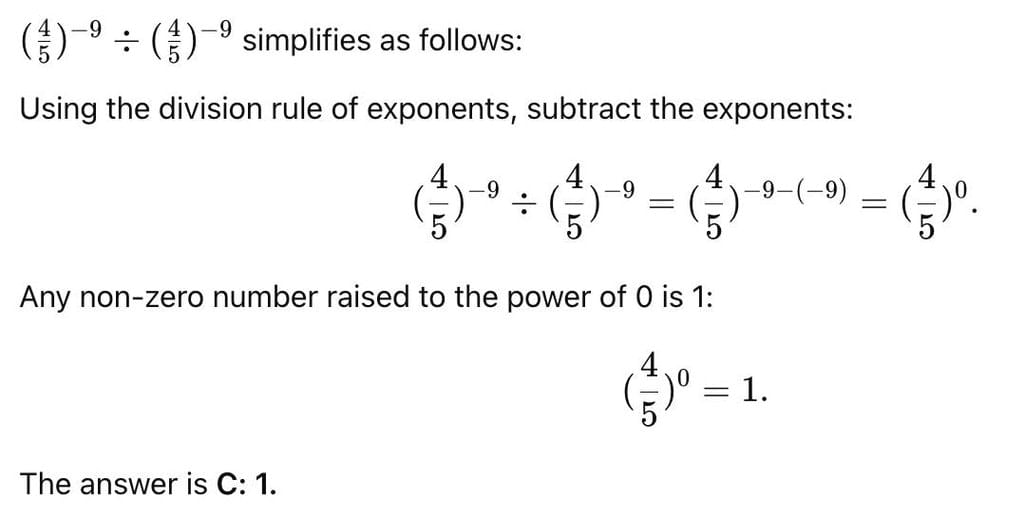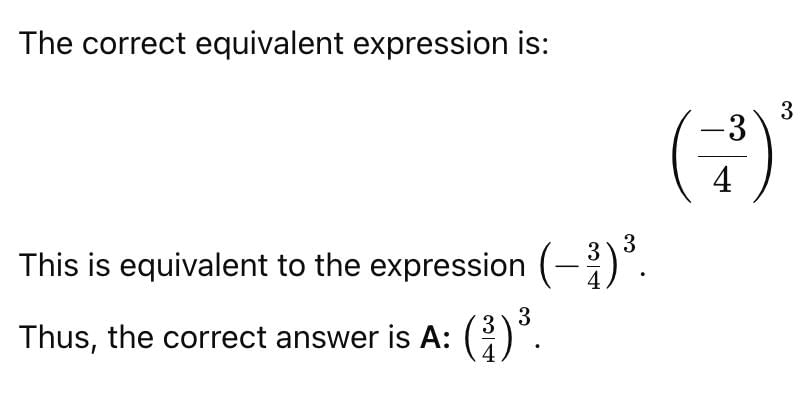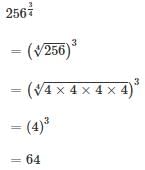Grade 9 Exam > Grade 9 Tests > Test: Laws of Exponents - Grade 9 MCQ
Test: Laws of Exponents - Grade 9 MCQ
Test Description
20 Questions MCQ Test - Test: Laws of Exponents
Test: Laws of Exponents for Grade 9 2024 is part of Grade 9 preparation. The Test: Laws of Exponents questions and answers have been prepared
according to the Grade 9 exam syllabus.The Test: Laws of Exponents MCQs are made for Grade 9 2024 Exam.
Find important definitions, questions, notes, meanings, examples, exercises, MCQs and online tests for Test: Laws of Exponents below.
Solutions of Test: Laws of Exponents questions in English are available as part of our course for Grade 9 & Test: Laws of Exponents solutions in
Hindi for Grade 9 course.
Download more important topics, notes, lectures and mock test series for Grade 9 Exam by signing up for free. Attempt Test: Laws of Exponents | 20 questions in 30 minutes | Mock test for Grade 9 preparation | Free important questions MCQ to study for Grade 9 Exam | Download free PDF with solutions
Detailed Solution for Test: Laws of Exponents - Question 1
Detailed Solution for Test: Laws of Exponents - Question 2
| 1 Crore+ students have signed up on EduRev. Have you? Download the App |
Detailed Solution for Test: Laws of Exponents - Question 3
Detailed Solution for Test: Laws of Exponents - Question 4
Detailed Solution for Test: Laws of Exponents - Question 5
Detailed Solution for Test: Laws of Exponents - Question 6
Detailed Solution for Test: Laws of Exponents - Question 7
Detailed Solution for Test: Laws of Exponents - Question 8
Detailed Solution for Test: Laws of Exponents - Question 9
Detailed Solution for Test: Laws of Exponents - Question 10
Detailed Solution for Test: Laws of Exponents - Question 11
Detailed Solution for Test: Laws of Exponents - Question 12
Detailed Solution for Test: Laws of Exponents - Question 13
Detailed Solution for Test: Laws of Exponents - Question 14
Detailed Solution for Test: Laws of Exponents - Question 15
Detailed Solution for Test: Laws of Exponents - Question 16
Detailed Solution for Test: Laws of Exponents - Question 17
Detailed Solution for Test: Laws of Exponents - Question 18
Detailed Solution for Test: Laws of Exponents - Question 19
Test: Laws of Exponents - Question 20
3. Very small numbers can be expressed in standard form using __________ exponents.
Detailed Solution for Test: Laws of Exponents - Question 20
Information about Test: Laws of Exponents Page
In this test you can find the Exam questions for Test: Laws of Exponents solved & explained in the simplest way possible.
Besides giving Questions and answers for Test: Laws of Exponents, EduRev gives you an ample number of Online tests for practice
Download as PDF























